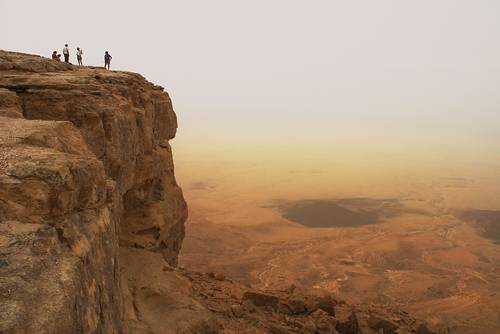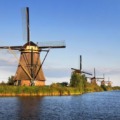Israel, a nation nestled along the eastern Mediterranean coast, stands as a vibrant and diverse country recognized for its rich historical heritage, technological innovation, and cultural dynamism. Established in 1948, Israel has thrived as a democratic state, embracing a diverse populace comprising Jews, Arabs, and other ethnic groups. The country boasts a robust economy propelled by a burgeoning tech sector, leading advancements in fields like cybersecurity, biotechnology, and renewable energy. Israel’s historical significance resonates worldwide, particularly in Jerusalem, a city revered by Judaism, Christianity, and Islam. Despite security challenges and enduring geopolitical tensions, Israel continues to evolve as a resilient and forward-thinking nation, characterized by its unique blend of tradition and modernity.
Neighboring Palestine, a region encompassing the West Bank, Gaza Strip, and parts of Israel, holds deep historical and cultural significance as a land revered by Palestinians for generations. With a heritage steeped in ancient civilizations and religious significance for Muslims, Christians, and Jews, Palestine embodies a poignant narrative of resilience and struggle. Palestinians have faced enduring challenges, including displacement, conflict, and occupation, seeking self-determination and statehood. The territories grapple with socio-economic difficulties, political divisions, and the impact of protracted conflict, significantly affecting the lives of its people.
Jerusalem, Israel
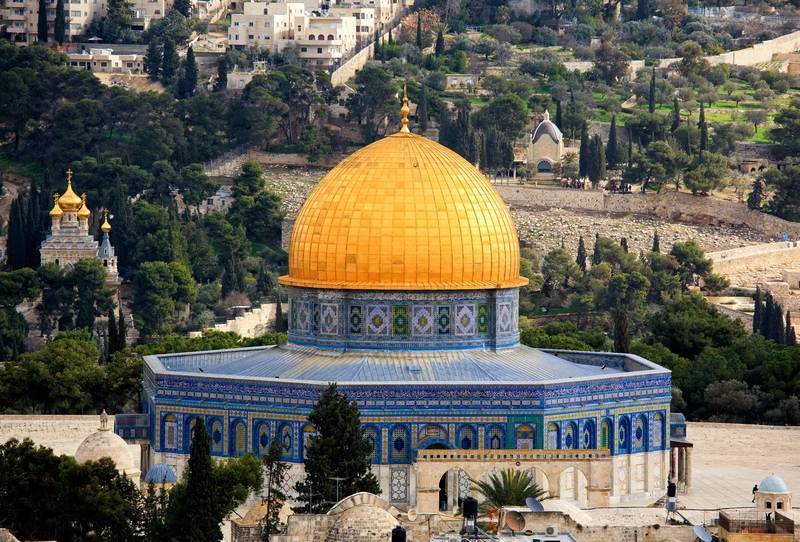 Dome of the Rock, regarded as the place Prophet Muhammad ascended to Heaven. georgy-kuryatov-shutterstock |
Jerusalem, revered as one of the oldest and holiest cities in the world, stands as a spiritual and historical crossroads cherished by Judaism, Christianity, and Islam. Its significance spans millennia, encompassing religious sites like the Western Wall, the Church of the Holy Sepulchre, and the Dome of the Rock, symbolizing the religious and cultural mosaic of the region. As the focal point of diverse faiths, Jerusalem’s rich history intertwines with its status as a contested city, a pivotal aspect of the Israeli-Palestinian conflict, with both sides vying for control and sovereignty.
Bethlehem, Palestine
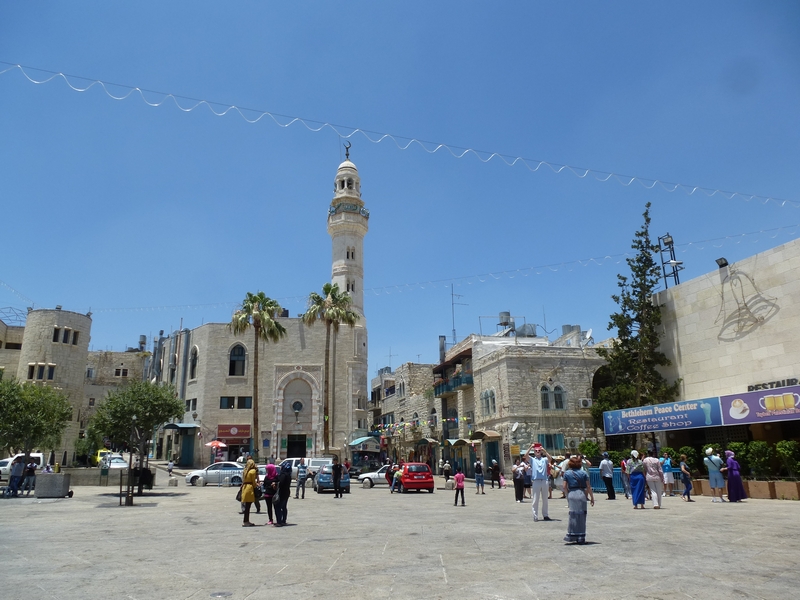 Bethlehem square. |
Bethlehem, situated in the West Bank, holds profound significance as the revered birthplace of Jesus Christ and remains a focal point for Christian pilgrimage and worship. At the heart of Bethlehem stands the Church of the Nativity, an ancient basilica built over the site traditionally believed to mark the spot where Jesus was born. This UNESCO World Heritage Site, dating back to the 4th century, represents a harmonious blend of Byzantine, Crusader, and medieval architecture. Its revered Grotto of the Nativity, a subterranean chamber adorned with religious iconography, is a site of deep spiritual significance, drawing visitors from around the world who come to pay homage to the biblical event commemorated within its hallowed walls.
Bahai Gardens, Haifa, Israel
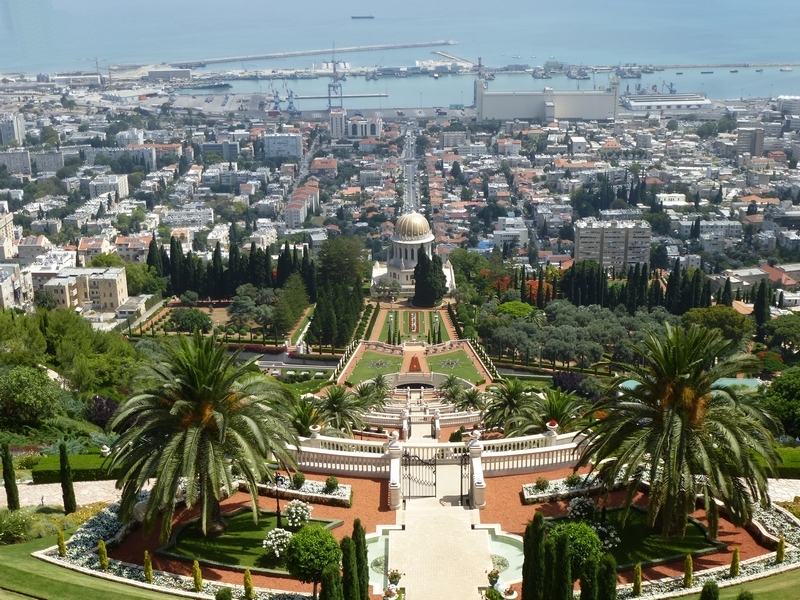
Bahai Gardens and Shrine of the Bab.
Haifa, a picturesque city along Israel’s Mediterranean coastline, boasts a unique blend of cultural diversity and natural beauty, with one of its most renowned landmarks being the Baha’i Gardens. These meticulously landscaped terraces cascade down the slopes of Mount Carmel, showcasing stunning geometric designs, vibrant floral arrangements, and immaculate lawns, all meticulously maintained by the Baha’i community. The gardens, a UNESCO World Heritage Site, hold spiritual significance as they surround the Shrine of the Bab, a revered Baha’i holy place commemorating the faith’s founder.
The Dead Sea, Israel
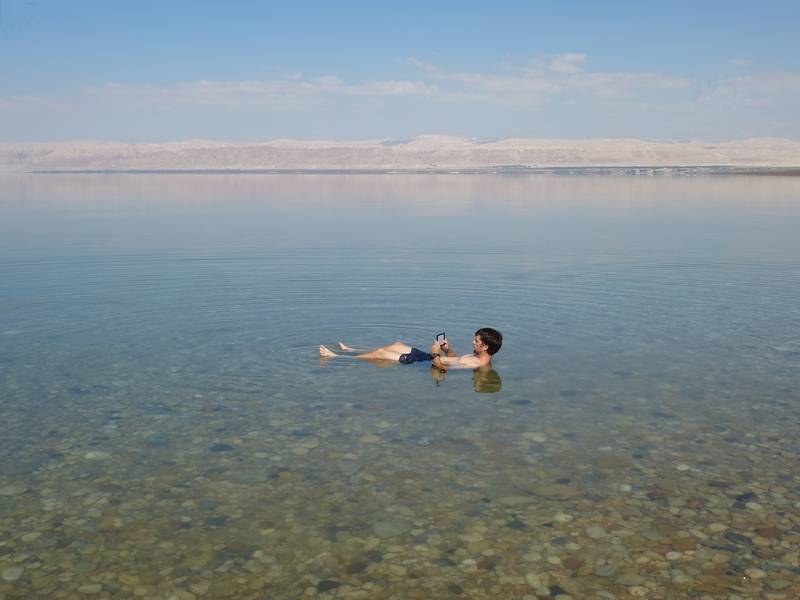
The Dead Sea, the earths lowest point at 423 meters below sea level.
The Dead Sea, situated at the lowest point on Earth, is a natural wonder renowned for its high salt content and therapeutic mineral-rich waters. Located in Israel, visitors can access the Dead Sea from various points along its shores, with popular spots including Ein Bokek, a resort area offering access to private beaches, spas, and therapeutic mud treatments. Another prominent area is the Ein Gedi Nature Reserve, featuring hiking trails, waterfalls, and opportunities to experience the region’s unique flora and fauna. Masada, an ancient fortress perched atop a plateau overlooking the sea, offers historical intrigue along with panoramic views.
Akko, Israel
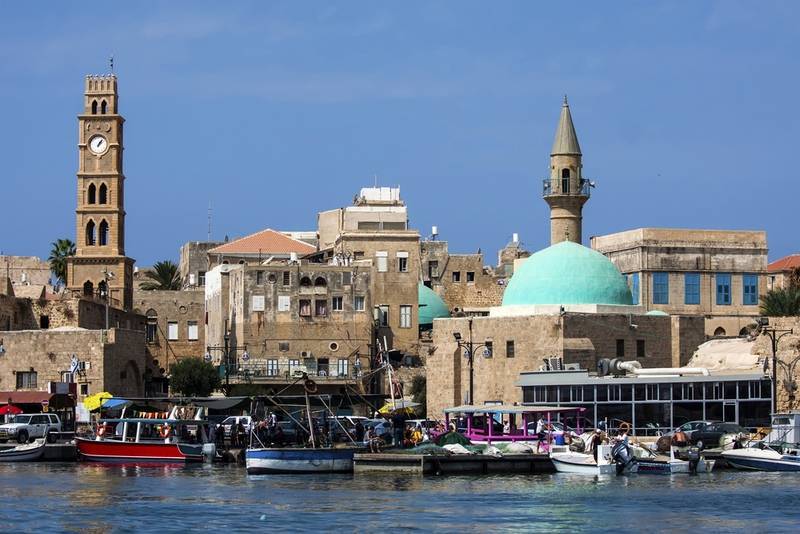
Akko old town. maratr/shutterstock
Akko (also known as Acre) stands as a historically rich coastal city in northern Israel, renowned for its diverse cultural heritage and ancient significance. Its well-preserved Old City, a UNESCO World Heritage Site, boasts a labyrinthine network of narrow streets, Ottoman-era architecture, and remnants of Crusader fortifications that captivate visitors with their historical allure. The city’s imposing citadel, once a stronghold for various empires, offers panoramic views of the Mediterranean and showcases the layered history of Akko. Beyond its historical significance, Akko thrives as a vibrant modern city, boasting a lively market, bustling port, and a blend of Arab and Jewish communities that contribute to its unique cultural tapestry.
Negev Desert, Israel
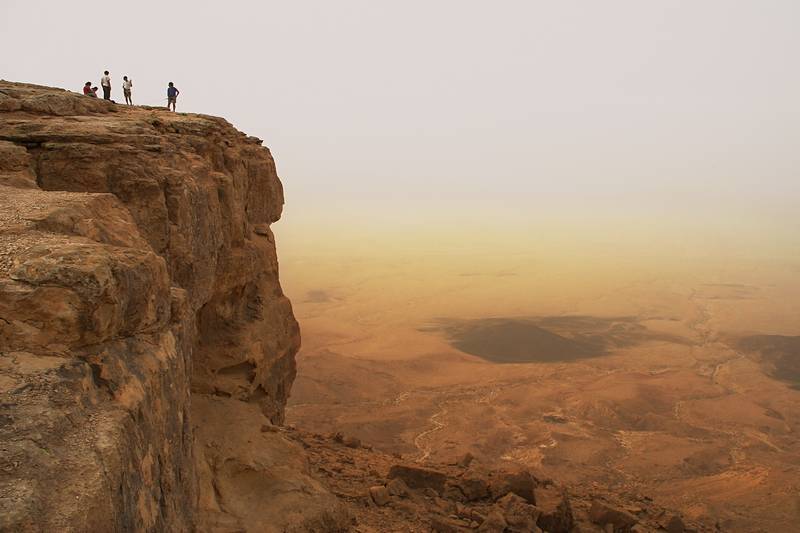
Ramon Crater in the Negev Desert. rostislav-glinsky/shutterstock
The Negev Desert sprawls across the southern region of Israel, encompassing a diverse and mesmerizing landscape characterized by its stark beauty and geological formations. This expansive desert, covering more than half of Israel’s land area, showcases a stunning array of landscapes, from vast rocky plains to dramatic canyons like the Ramon Crater (Makhtesh Ramon), a colossal geological marvel revered for its unique shape and geological history. The Negev is also home to thriving desert communities, ancient Bedouin traditions, and archaeological sites such as the ancient city of Avdat, offering glimpses into centuries-old civilizations. Despite its arid nature, the Negev boasts surprising biodiversity, including rare plants and wildlife adapted to the harsh desert environment.
Tel Aviv, Israel
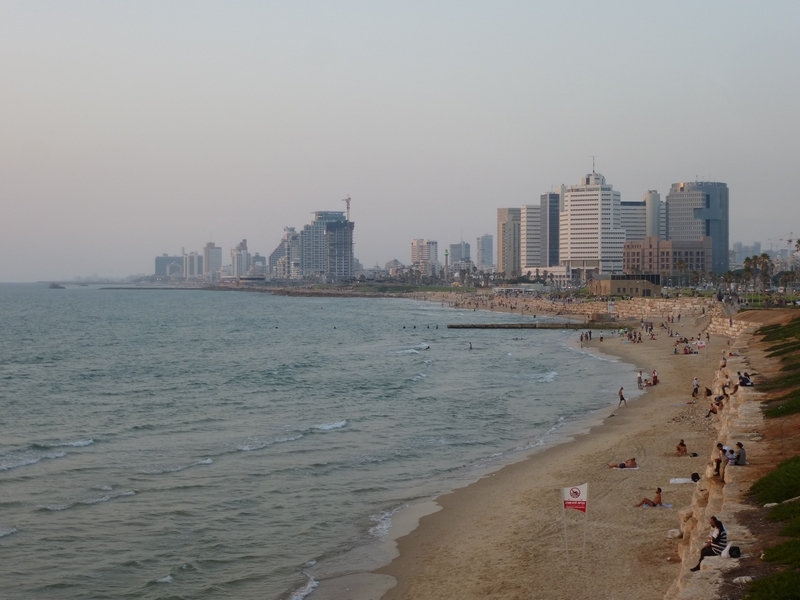 |
Tel Aviv, often dubbed “the city that never sleeps,” stands as a vibrant metropolis on Israel’s Mediterranean coastline, renowned for its cosmopolitan atmosphere, lively cultural scene, and beautiful beaches. This bustling city embodies a unique blend of modernity and history, boasting a skyline adorned with contemporary skyscrapers alongside Bauhaus architecture in the UNESCO-listed White City area. Tel Aviv pulsates with energy, offering a dynamic culinary landscape, eclectic nightlife, and a flourishing arts scene seen in its galleries, theaters, and street art. Its inviting coastline, stretching along the Mediterranean Sea, attracts locals and tourists alike for sun-soaked days, water sports, and leisurely promenades. Beyond its recreational offerings, Tel Aviv embraces a diverse population, fostering a progressive outlook and a thriving startup culture in areas like the renowned Rothschild Boulevard.
Eilat, Israel
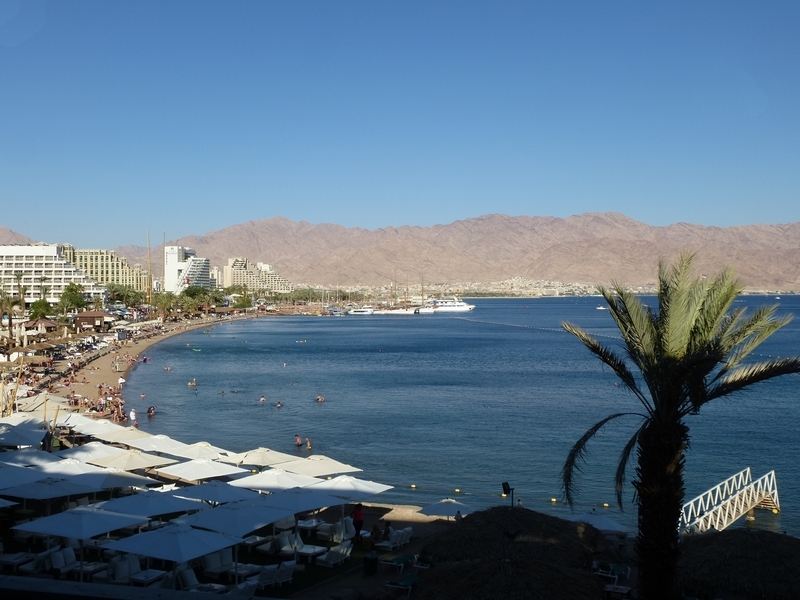 |
Eilat, situated at the southernmost tip of Israel on the shores of the Red Sea, embodies a unique blend of natural beauty, vibrant marine life, and resort-style attractions. Renowned for its year-round sunshine and crystal-clear waters, Eilat’s stunning coral reefs make it a premier destination for snorkeling and diving enthusiasts. The city’s picturesque beaches, like the popular Coral Beach Nature Reserve, showcase an array of colorful marine species and offer opportunities for underwater exploration. Eilat’s allure extends beyond its aquatic wonders, boasting a vibrant nightlife, luxury hotels, and bustling shopping districts along the promenade. Moreover, the surrounding desert landscapes provide opportunities for outdoor adventures, such as hiking in the Eilat Mountains and exploring Timna Park’s geological formations and ancient copper mines.


